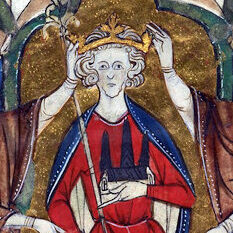January 1264

A truce was to be observed during the course of arbitration. Henry being Henry, he ordered Roger Mortimer, an exceedingly violent man even for a marcher baron, to attack Simon’s manors in the hope of preventing his adversary from attending the proceedings in person. He knew the reformist side hinged on Montfort’s powers of persuasion and his friendship with Louis. In the end, all it took was a hole in the ground. While heading south for Dover, Montfort suffered a broken leg when his horse stumbled and fell. Forced to stay behind, he was no doubt confident the king of France would still rule close to his original affirmation of the Provisions. Louis, however, stunned everyone by completely nullifying them in his Mise of Amiens issued on 23 January 1264. Acting “unmindful of his own honour,” in the words of one chronicler, he declared that Henry had the right to appoint any official he saw fit, whether native-born or not. He tried to evade responsibility by insisting that the pope had nullified the Provisions first, then hedged by assuring the people of England that Magna Carta was in no way affected by his ruling. Sworn to abide by the award, Simon and his associates justified their continuing resistance by arguing that the Provisions were founded on the principles of Magna Carta. Louis’ betrayal, which was variously attributed to bribes, nagging or some concerted action with the papacy, rankled deeply. “Though all may forswear me, I will stand firm with my sons in the just cause to which my faith is pledged,” Simon proclaimed, adding gloomily that of all the lands he had been to, never had he met with more treachery than in England. But he did get some help when Gilbert de Clare finally decided to join forces with him and London remained firmly committed to the reformist cause. Civil war was now inevitable.
